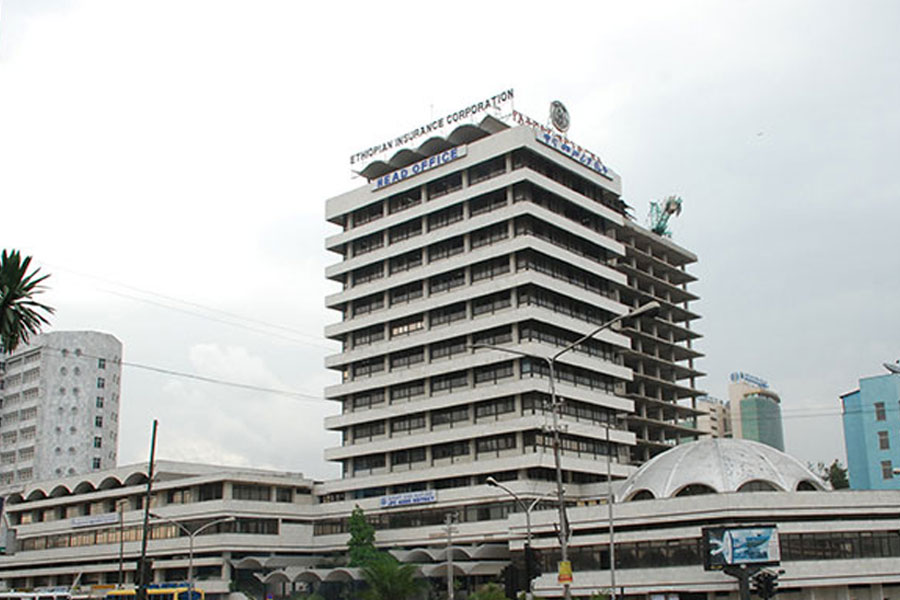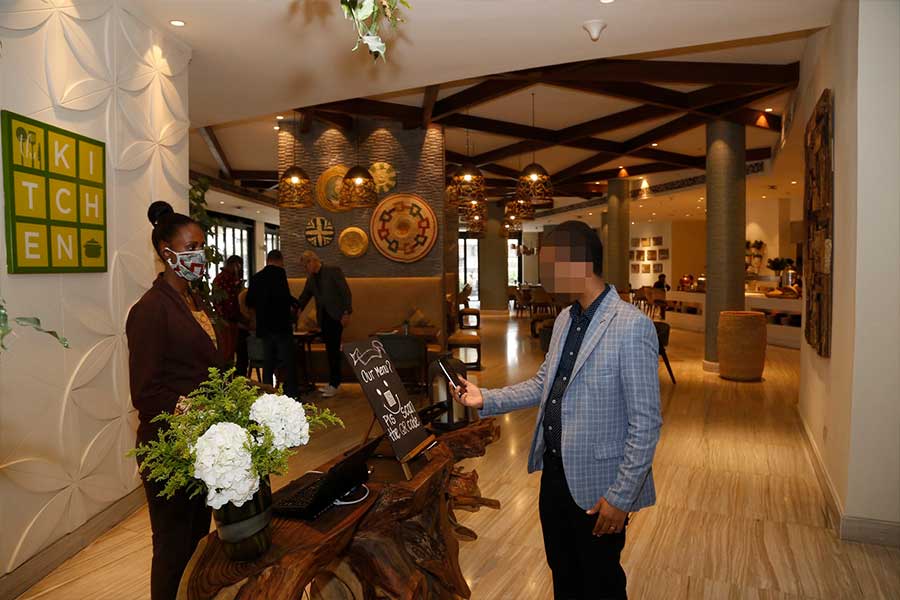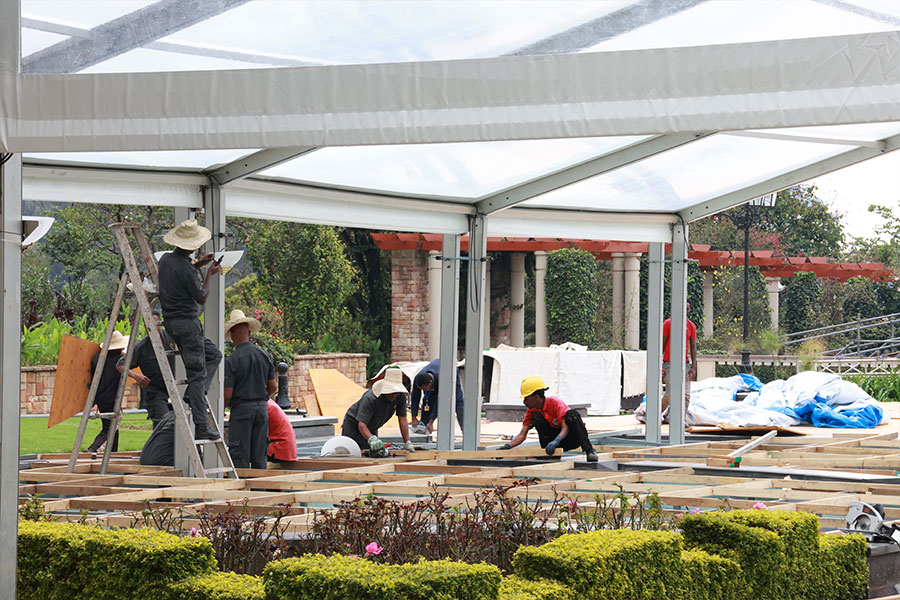
May 7 , 2022
By Christian Tesfaye
The 2020s, and potentially the 2030s, could be one of those “lost decades” for Africa, Ethiopia included. William Easterly used the term to refer to developing countries’ stagnation in the 1980s. He conceded that indicators such as health, education and even infrastructure improved between 1960 and 1998.
But this never translated into increased economic output, especially in the 1980s and 1990s, when growth was flat. The last decades of the 20th century were a “return to the historical pattern of divergence between rich and poor countries.”
Those dark days may be returning. Thanks to a global spike in commodity prices, the 2010s did not get off to a good start, but COVID-19 and now the Russian invasion of Ukraine have accelerated an already ensuing crisis. Look no further for proof of this “divergence” than the fact that GDP in the rich world will be one percentage point below its pre-pandemic levels in 2024 compared to low- and middle-income countries’ five percentage point lag.
What happened? We were doing so well, were we not?
It is internal and external factors that will be driving the lag. The former is the increase in conflicts and political instability. The Arab Spring was an ominous indication of what might be in store for Africa as the social fabric crumbled (not that it ever held up that well). Nationalism and extremism are fuelling conflict after conflict with no end in sight, which are detrimental to investment and the ease of doing business in these countries.
The external factors are no less daunting. In the aftermath of the COVID-19 pandemic and the Russia-Ukraine crisis, the world suffers from the highest energy and food prices on record. Basic goods that all economies need, such as fertiliser, fuel, wheat and edible oil, are burning through national budgets at unprecedented levels.
The World Bank expects such prices to remain elevated in the short- to medium term. The rich world can afford it (though they will not like it). Most net importers of essential goods, which is a significant chunk of the Global South, will be bankrupted. Currently, a tenth of the 70 low-income countries globally has unsustainable levels of debt. Ethiopia and another 50pc of this bunch could follow soon, as The Economist indicated recently. The debt default tsunami is coming.
Worse still, capital may not come as readily as before the COVID-19 pandemic. There are two reasons for this. The first is expensive borrowing costs. The rich world is tightening its purse strings to tame inflation similar to what it did in the 1980s. As interest rates in the rich world increase, capital rushes out of developing countries chasing higher interest rates. Beyond this, it also makes the dollar and the euro stronger than local currencies, further squeezing forex reserves and national budgets.
It is not just higher borrowing costs and a stronger dollar that will make capital less likely to flow to developing countries. It is also changing priorities. Cold War 2.0 has begun. We had not gotten a poetic and quotable declaration as we did with the first one when Winston Churchill made his “Iron Curtain” speech. But going by the rhetoric coming out of the US, Europe, Russia and China, we are headed for a superpower struggle.
If the powerful nations prioritise containing the power and influence of one another over common existential crisis such as climate change, food insecurity and pandemics, to name a few, it is poor countries, especially those in Sub-Saharan Africa, that will pay the most.
The lost decades, this time around may be worse than they were in the 1980s and ‘90s. On the bright side, Africa has more educated and healthier youth and a history to learn from as it face the challenges of today and tomorrow. Unfortunately, it still has the dysfunctional politics that ruled those dark times, not to mention the hefty costs of unsustainable population growth and punishing extreme weather events resulting from global warming.
PUBLISHED ON
May 07,2022 [ VOL
23 , NO
1149]


Fortune News | May 08,2021

Radar | Mar 11,2024

Sunday with Eden | Aug 21,2021

View From Arada | May 25,2019

Agenda | Sep 30,2023

Commentaries | Jan 28,2023

Fortune News | Jun 20,2020

Featured | Sep 10,2023

Fineline | Jul 20,2019

Sunday with Eden | Nov 16,2024

My Opinion | 131659 Views | Aug 14,2021

My Opinion | 128023 Views | Aug 21,2021

My Opinion | 125986 Views | Sep 10,2021

My Opinion | 123610 Views | Aug 07,2021

Dec 22 , 2024 . By TIZITA SHEWAFERAW
Charged with transforming colossal state-owned enterprises into modern and competitiv...

Aug 18 , 2024 . By AKSAH ITALO
Although predictable Yonas Zerihun's job in the ride-hailing service is not immune to...

Jul 28 , 2024 . By TIZITA SHEWAFERAW
Unhabitual, perhaps too many, Samuel Gebreyohannes, 38, used to occasionally enjoy a couple of beers at breakfast. However, he recently swit...

Jul 13 , 2024 . By AKSAH ITALO
Investors who rely on tractors, trucks, and field vehicles for commuting, transporting commodities, and f...

Jun 28 , 2025
Meseret Damtie, the assertive auditor general, has never been shy about naming names...

Jun 21 , 2025
A well-worn adage says, “Budget is not destiny, but it is direction.” Examining t...

Jun 14 , 2025
Yet again, the Horn of Africa is bracing for trouble. A region already frayed by wars...

Jun 7 , 2025
Few promises shine brighter in Addis Abeba than the pledge of a roof for every family...

Jun 29 , 2025
Addis Abeba's first rains have coincided with a sweeping rise in private school tuition, prompting the city's education...

Jun 29 , 2025 . By BEZAWIT HULUAGER
Central Bank Governor Mamo Mihretu claimed a bold reconfiguration of monetary policy...

Jun 29 , 2025 . By BEZAWIT HULUAGER
The federal government is betting on a sweeping overhaul of the driver licensing regi...

Jun 29 , 2025 . By NAHOM AYELE
Gadaa Bank has listed 1.2 million shares on the Ethiopian Securities Exchange (ESX),...